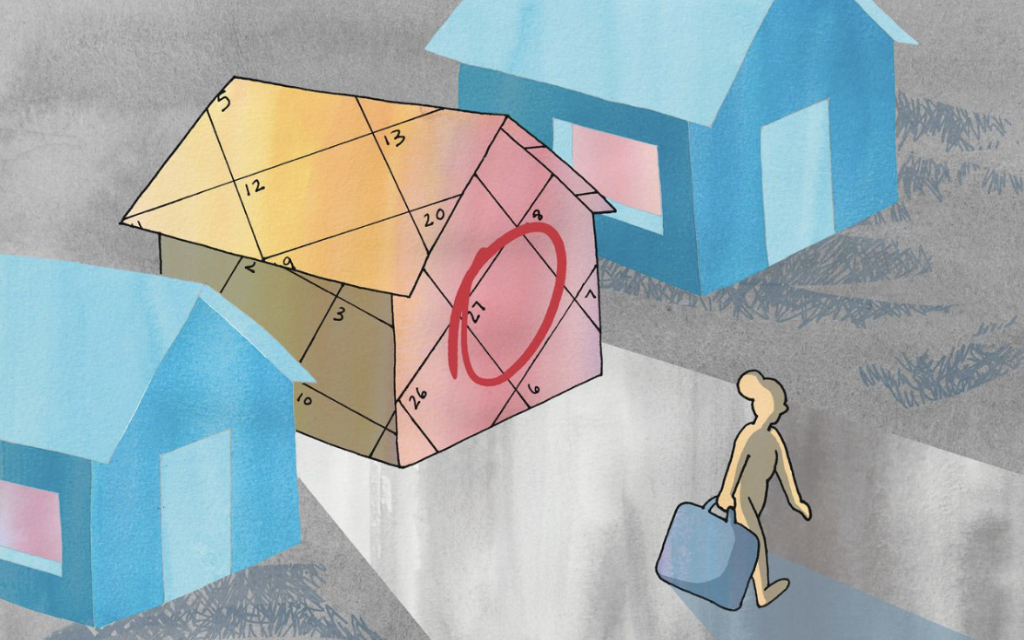Alabama’s program to help renters during the pandemic has taken a turn for the better, advocates say, after significant delays in distributing the hundreds of millions of dollars in COVID-19 rental assistance. Still the state has given out less than half of the federal money it received.
During the COVID-19 pandemic, the federal government gave money to states for emergency rental assistance, including allotting $267 million to help Alabamians avoid eviction. But that money did not quickly reach many renters in Alabama early in the pandemic. That’s changed, at least for some Alabamians who are on the verge of eviction, say advocates.
“The system is working pretty fluidly,” said Michael Forton, policy director at Legal Services Alabama. “We’re in constant contact with (Alabama Housing and Finance Administration) and Horne. They have gotten much faster about cutting checks.”
Horne LLP, the Mississippi-based contractor hired by the department to manage the rollout of the program initially received millions of dollars to distribute a small fraction of the aid to help people stay in their homes AL.com reported as the situation unfolded.
Over a year and a half into the pandemic, the state had distributed less ten percent of available funds to tenants. By October of 2021, Horne LLP had received $6.1 million and distributed $23.3 million. Alabama has since renewed its contract with Horne to manage the program through April of 2023 for up to $24.1 million.
Jay Williams, program associate for the Low-Income Housing Coalition of Alabama said the state is doing significantly better than before in getting the federal help to people in need.
“At this point we are in a very happy place with (Emergency Rental Assistance) Alabama. We have observed the programmatic changes they have implemented over the last year and seen them to increase the level of visibility the program has,” he said, noting that the state made an effort to reach homeless populations to let them know about the ability to apply for help.
Horne LLP did not immediately respond to a request for comment for this story and has in the past stated that it is not authorized to comment on its management of the program.
This spring, the agency expanded a partnership with Legal Services Alabama, paying the group to help Alabamians who fall behind on rent get expedited help with emergency rental assistance applications and avoid eviction.
As part of its use of the federal money, the partnership between legal services, Horne, and the agency, aims to flag people who have received 7-day eviction notices to expedite their applications for rental assistance.
“The rental and utility assistance provided under the Initiative has prevented imminent evictions for more than 1,700 families with funding support totaling over $12 million,” as of July 17, an Alabama Housing and Finance Administration spokesperson stated to Al.com in an email.
In total, Alabama received over $267 million from the federal government to help people facing hardships due to COVID-19 with rent and utilities and it returned over $25 million to the federal government due to delays in distribution, according to the agency. Alabama had spent $128 million of its funds on 31,432 renter households as of July 17.
Nationwide, most tenants facing eviction are without legal help. Nationally just three percent of tenants have access to an attorney, compared to 81 percent of landlords, according to the National Coalition for a Civil Right to Counsel.
Forton, with legal services, said before the pandemic, most of their clients facing evictions ended up losing their homes, but for now, 99 percent of them avoid being put out. That will likely change again when the federal funds dry up, he said.
“The new (legal services) staff don’t understand what it’s like, back in normal times, when 70 or 80 percent of your clients eventually had to move because they couldn’t afford to pay rent,” he said. “I do wonder if they’ll be a little bit heartbroken whenever the money runs out, because it’s going to be a whole different world.”











